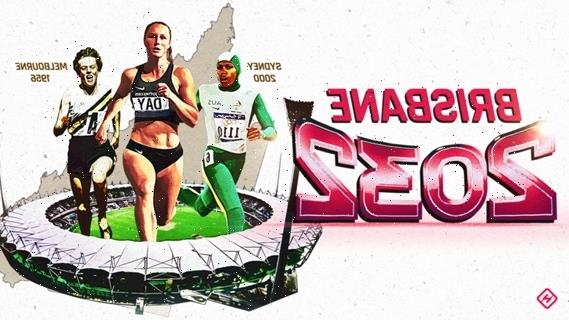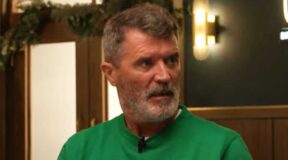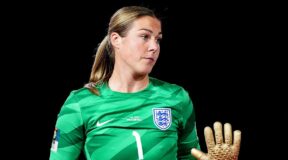The International Olympic Committee has confirmed that Brisbane will host the 2032 Summer Olympic and Paralympic Games.
Australia will become just the fourth country to have hosted the Summer Olympic Games three or more times.
Melbourne hosted the 1956 Games and Sydney was the host of the 2000 Games.
The announcement was made at the 138th IOC Session in Tokyo ahead of the Tokyo 2021 Olympic Games, which officially begin Friday.
In February, it was confirmed that Brisbane was the IOC’s preferred bid for the 2032 Summer Olympic and Paralympic Games.
This began targeted dialogue between the IOC executive and the Brisbane 2032 bid to thoroughly examine the proposed plan for the Games.
The process for awarding an Olympic Games has become much more extensive since the introduction of the Future Host Commission for the Games of the Olympiad.
In June, the IOC’s executive board unanimously voted in favor of the Brisbane 2032 bid which put it forward to Wednesday’s IOC session.
Only one major concern was presented at the IOC session, by member Pal Schmitt, surrounding the move to award the Games to Brisbane 11 years before and not the traditional seven.
That concern was calmly addressed by the members of Brisbane’s bid team, including AOC president John Coates, Queensland Premier Annastacia Palaszczuk and Brisbane Lord Mayor Adrian Schrinner.
That left the IOC members to vote on the question, “Do you accept to elect Brisbane as host of the Games of the XXXV Olympiad?”
All Brisbane required at the IOC vote was a majority of IOC members to vote in favor of the Games. The vote passed.
It has been reported that five IOC members voted against Brisbane’s 2032 bid. Eighty votes were cast using an electronic ballot, with 72 supporting the bid, five opposing and three abstaining.
Details of Brisbane 2032 bid
A lot has been made of the unique nature of Brisbane’s bid model as organizers look to reduce overall costs but keep the same Olympic experience.
As has previously been mentioned, the Brisbane 2032 Games will be spread across South-East Queensland.
While Brisbane will host the majority of events, the Sunshine Coast and Gold Coast will also host events and athletes.
The games will also take place in Australia’s winter; Queensland’s weather was a big part of Brisbane’s pitch.
The opening ceremony is scheduled to be July 23, 2032, the same day and month that the Tokyo Games will start this year.
https://images.daznservices.com/di/library/sportal_com_au/1f/c1/brisbane-olympic-venues_1przl5cjhrwvo140vdt82ve4ok.png”>
The bid organizers have also made a contractual commitment to be a ‘climate positive’ Games. Brisbane would be the first host city to agree to this contractually.
This has been a big part of what has set the Brisbane 2032 group ahead as it wants the city to be seen as “clean, green and sustainable”.
Palaszczuk also confirmed that the state is working toward 50 percent renewable energy by 2030.
A majority of venues used for the Games (80 percent) are either already built, in use or will be temporary.
This will severely reduce much of the cost of hosting the games, and much of the infrastructure program will proceed regardless of the Games being held in Brisbane.
While on the bid alone, the Future Host Commission confirmed that Brisbane 2032 spent approximately 80 percent less on its bid than other countries have in the past.
You can view full details of the Master Plan for the 2032 Brisbane Games in the video below.
An impact study carried out by KPMG into the economic and environmental impact of the 2032 Games in Brisbane concluded that the event would bring in an estimated $6.1 billion to the state of Queensland.
More broadly for Australia, the study estimated it would bring in $13.4 billion nationally.
Reaction to Brisbane’s successful 2032 bid
It’s no surprise that many Australians are overjoyed at the thought of the country hosting another Olympic Games.
While it’s set to be a massive economic boost to the country and in particular the state of Queensland, it will also have a massive impact on Australia’s sporting landscape.
Sporting News spoke with a number of Australian Olympians competing in Tokyo ahead of the Brisbane 2032 announcement.
All being Queenslanders, it’s no surprise they were excited that their state would be hosting the Olympics.
Gabriella Palm, a member of the Australian women’s water polo team, The Aussie Stingers, believes it’s set to give a massive boost to sports like water polo that don’t necessarily have a big profile in Australia.
“Any Olympic Games is special, but to have an Olympics on your home soil is extra special,” Palm said.
“Having the Games in Sydney where the Stingers won gold, having the chance to do that again and have an Olympic Games on home soil, it means everything.
“I could still be playing then, it’s a possibility, so to potentially participate in those Games is another thing. But just to have it in Australia, I think it will be such good coverage and awareness for water polo.
“We’re not the most well-known sport so I think bringing the Olympics to Aussie soil will be really great for water polo.
“And having it on Aussie soil will be a real incentive for me to keep going.”
Two-time Olympian Alyce Wood reflected on her own experiences of attending Sydney 2000 when thinking about Brisbane 2032.
Getting to attend those Games inspired Wood to become an Olympian and she has no doubt Brisbane 2032 will do the same for a new generation of Australian athletes.
“I think, if we get 2032 it’s a game-changer for so many reasons,” Wood said.
“First and foremost for me, I, as an 8-year-old, went down to the Sydney Olympics and watched basketball and European handball, which are two sports that I knew nothing about.
“Just being exposed to a multisport event like the Olympics and seeing how everyone got around it was what made me want to be an Olympian way back then.
“To have that come to our state would be so special because the kids growing up would get to experience the same things as I did.
“You find a lot of Olympians on this year’s team and Rio had that experience as a youngster in Sydney.
“Obviously, just having so many facilities shared around the Sunshine Coast, Gold Coast and Brisbane and being able to get involved in it and seeing how much excitement the Olympics brings.
“The Commonwealth Games on the Gold Coast were huge and everyone got super involved, but I can safely say the Olympics are a lot bigger deal. They can create a legacy in so many different areas beyond what the Commonwealth Games did.”
Daniel Beale, a member of the Kookaburras squad for Tokyo 2020, already knows he’s going to be booking his tickets for Brisbane 2032 in his hometown.
“I think it would be huge for Brisbane,” Beale said.
“I think the Olympics are up there with the biggest sporting spectacles in the world, so I think for Australia to win it, let alone home town of Brisbane to win one, I think it would be great for Australia and great for the city of Brisbane.
“I will definitely be flying there and watching as much of it as I can if they do win it. I really hope it gets there.”
Prime Minister Scott Morrison believes Brisbane 2032 will create a lasting legacy for Australia similar to that created by the Sydney 2000 Games.
“They will support economic growth and investment, deliver lasting community benefits and inspire the next generation of Australian athletes,” Morrison said.
“I am proud of Australia, proud of Queensland and proud of our team that secured this win for our country.
“The Commonwealth Government has supported Brisbane’s candidacy for the 2032 Olympic and Paralympic Games right from the very start. We believe in this bid.
“We know it’s a huge opportunity for our nation, just like the Melbourne Games in 1956 and the Sydney Olympics in 2000.”
Who else bid for the 2032 Olympic Games?
Brisbane was the only bid up for vote at Wednesday’s IOC Session, but it was not the only bid for the 2032 Games.
IOC vide president and Australian Olympic Committee president John Coates confirmed in June that several other countries were looking at bidding for the 2032 Games.
Those countries included Indonesia, the Netherlands and Qatar.
However, Brisbane’s bid was so far progressed that it was chosen to proceed into targeted dialogue with the IOC and the rest is history.
Source: Read Full Article






